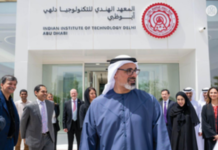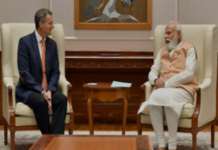Kharagpur–The Indian Institute of Technology, Kharagpur, is joining hands with the Massachusetts Institute of Technology for a course to study urbanisation in the current developing world, where the concept is no longer limited to the precincts of what are administratively defined as “cities”, its director said here on Sunday.
The course, set to start from October, would see a collaboration between the IIT’s Department of Architecture and Regional Planning and the MIT’s School of Architecture and Planning, IIT Kharagpur Director Partha Pratim Chakrabarti told media persons.

“A joint report will be produced by MIT and IIT; final presentation will be made at MIT at a two-day colloquium in April 2017,” he said.
The practicum will be organised at Santiniketan, Bolpur, West Bengal.
“Santiniketan represents the epitome of an older, nationalist imagery of cultural pastoralism, a pastoralism that defined the arts as much as it undergirded emphasis on the rural and the agrarian from which a modern economy would emerge,” said Chakrabarti.
The course will dwell on how planning can evolve practicable norms, within a given ecological, regulatory, and investment terrain and climate, through which diverse range of economic and social styles of activity, as well as a plurality of ecological, cultural terrains can continue to have a future.
Proposals will be made regarding an integrated site management strategy for Visva-Bharati University and guidelines suggested to control piece-meal development in the university campus so as to historically preserve its founder Rabindranath Tagore’s ideology behind its inception.
The course will also prepare a strategic plan for environmental stewardship, watershed management and historic preservation of the Khowai landform, close to the university, with its surrounding biodiversity in the context of growth. A technical model would be unveiled for delineating the region.
The practicum proposes a mutually enriching series of conversations, in seminar-cum- studio style, between the students of the two collaborating institutes.
Student group size will be 6-8 from each institute. Primarily graduate students, and few advanced undergraduate students will be enrolled for this course. The students would be divided into four groups working on the research agenda.
A group of faculty members and researchers across MIT-Harvard Boston community and IIT Kharagpur would guide the discussions. Sessions would be held at MIT, IIT Kharagpur and Santiniketan, and conducted by means of videoconferencing.
“Use of a forum like Piazza where all instructors and students could enroll for the course will help in off-classroom participation and discussions,” said Chakrabarti. (IANS)







